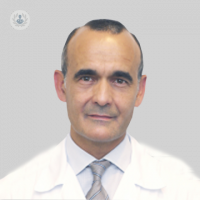Problems with heart valves?
Written by:
What are valvulopathies?
Inside the heart there are structures that are the heart valves, its mission is to open and close. They work like gates that allow, and at the same time force, the blood to always follow in the same direction through the heart circuit. Any disease of these valves are valvulopathies and although there are four valves inside the heart, there are really two: the mitral valve and the aortic valve are the ones that most frequently get sick.
What are your causes?
Depends on the affected valve. If the mitral valve is the most frequent disease is the degenerative or alteration of the valve tissue itself. In these cases, the valve ages before and can break and today is the most common valve disease in the world. A second frequent cause is the one derived from ischemic heart disease, patients with myocardial infarctions that can affect the function of this valve. Over time, the aortic valve is degenerating, it is ruined and light valves appear or more than light that from the age of 80 can appear in a significant percentage of the population, but in many cases they do not produce symptoms and there is no need to do nothing, no treatment. However, there is a 2% of the general population that is born with an abnormal aortic valve, is the so-called bicuspid aortic valve. This valve works very well for many years, but as it is abnormal it ages earlier and there are patients with 50-60 years old who are born with this aortic valve, who have to be operated at this age due to severe valvular heart disease.

Do they always have to be treated?
No, valvulopathies are long-term diseases that take years to produce symptoms. Meanwhile they have gone from light, to moderate or severe, but the heart is accommodated. This accommodation can become a problem because it involves changes that can end up being irreversible, so it is very important to operate the patient at the right time to obtain the best results in this way. And what is the best time to operate a patient? There are international guidelines for action, consensus among experts, which allow us to decide this moment. Basically, it will depend first on whether the valve is frankly impaired, has a severe valvular disease, and, on the other hand, that the patient has symptoms related to this valve or that the adaptive changes of the heart begin to be worrisome.
How can they be treated?
The treatment is fundamentally surgical. There are 2 types of possible surgeries, the repair and the prosthetic, and in both cases the results will be very good as long as the patient is operated at the right time. In the repair surgery, what we are going to do is keep the patient's own valve. This, in mitral valvu-lopatía, is shown to offer important advantages over prosthetic surgery.. In prosthetic surgery we will remove the diseased valve and implant a prosthesis. The prostheses, today, are very tested and really have an optimal functioning, so, although it is a more basic surgery, the results are excellent. Choosing one type of surgery depends on the affected valve, the type of disease and, above all, the experience of the surgeon.



